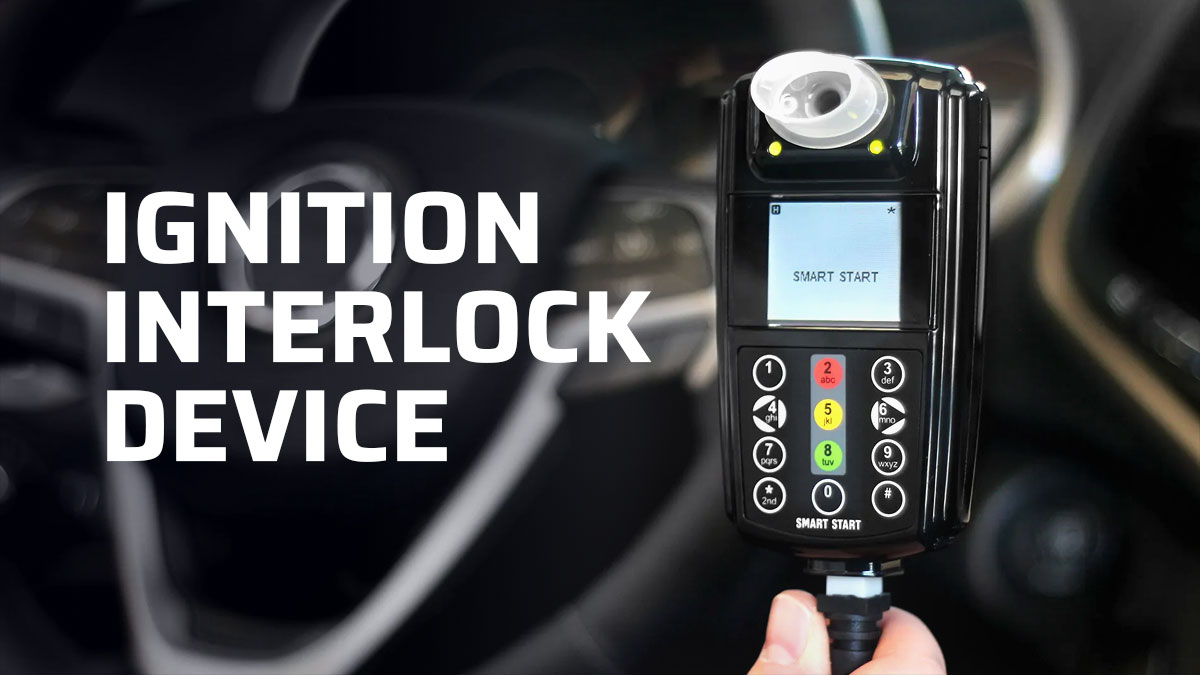Is your ignition interlock causing car problems? An ignition interlock device (IID) is a common requirement for individuals convicted of driving under the influence (DUI) or driving while intoxicated (DWI). While the purpose of the IID is to prevent impaired driving, some users express concerns about potential car problems caused by the device. In this article, we will explore whether an ignition interlock device can cause issues with your car, how to avoid these problems, and what steps to take if you experience any difficulties.
What is an Ignition Interlock Device?
An Ignition Interlock Device (IID), often referred to as a car breathalyzer, is a crucial tool designed to prevent individuals from driving under the influence of alcohol. This device needs a breath sample from the driver before the vehicle can be started. If the IID detects alcohol above a predetermined threshold, typically around a blood alcohol concentration (BAC) of 0.02%, the vehicle will not start.
Key Features:
- Breathalyzer Test: Prevents the car from starting if alcohol is detected.
- Rolling Retests: Requires additional breath tests while the vehicle is running.
- Data Logging: Records data, which can be reviewed by authorities.
How Does an Ignition Interlock Device Work?
- Installation: The IID is installed by a certified technician and is connected to the vehicle’s ignition system.
- Breath Testing: Before starting the car, the driver must blow into the device. The IID examines the breath sample to measure alcohol content.
- Starting the Vehicle: If the breath sample is below the legal limit, the vehicle will start. If it detects alcohol, the vehicle remains immobilized.
- Rolling Retests: Many IIDs require periodic retests while driving to ensure the driver remains sober. If a retest indicates alcohol, the vehicle will not shut off but may lock the driver out after multiple failures.
Purpose and Legislation of Ignition Interlock Devices
Ignition Interlock Devices are primarily used as a legal requirement for individuals convicted of driving under the influence (DUI) offenses. Their implementation aims to reduce recidivism and enhance compliance with DUI laws, ultimately contributing to safer roads by preventing alcohol-impaired driving. All U.S. states have enacted laws permitting or requiring the use of IIDs, and programs are often managed by local motor vehicle agencies.
Considerations for Using an Ignition Interlock Device
While IIDs are effective in preventing drunk driving, they can also be seen as inconvenient and costly due to installation and maintenance fees. Drivers must comply with regular servicing and calibration of the device, which is mandated by state laws. By understanding what an Ignition Interlock Device is and how it functions, individuals can better appreciate its role in promoting road safety and preventing DUI offenses.
Can an Ignition Interlock Causing Car Problems
While IIDs are generally safe, improper installation or faulty devices can lead to car problems. Below are some potential issues:
1. Battery Drainage
- Cause: The IID draws power from the car’s battery, even when the vehicle is off.
- Solution: Regularly drive your car and avoid long periods of inactivity to prevent battery drainage.
2. Wiring Issues
- Cause: Poor installation can result in faulty wiring, leading to problems with the car’s electrical system.
- Solution: Choose a certified installer with experience in handling your specific vehicle make and model.
3. Ignition Problems
- Cause: If the device malfunctions, it may prevent the car from starting, even when the driver is sober.
- Solution: Ensure regular maintenance and contact the service provider if issues arise.
4. Error Messages and Alerts
- Cause: A malfunctioning IID may trigger error codes or alerts on the vehicle’s dashboard.
- Solution: Regularly check the device for updates or malfunctions and report issues immediately.
Does an Ignition Interlock Device Damage a Car?
In most cases, the answer is no—an ignition interlock device (IID) will not damage your car. The potential for damage typically arises only if the device is installed by an inexperienced or unqualified technician. If the person handling the installation doesn’t fully understand the car’s electronic system, there’s a small chance of issues, such as the device draining the battery. However, this is more about the quality of the installer than the device itself.
This is why it’s crucial to choose a reputable, professional company, like Low Cost Interlock, to handle the installation. Their skilled technicians ensure a seamless, safe process, and their support team is available to answer any questions you might have. With proper installation, your IID will function as intended without negatively affecting your vehicle.
Clearing Up Misconceptions About IID Installation
Where exactly does the ignition interlock device go? As the name suggests, the IID connects to your vehicle’s ignition. But it’s important to understand that this connection is entirely electrical—it’s wired into the ignition system rather than physically drilled into any part of it. This means the device is not mechanically invasive, and no permanent alterations are made to your vehicle.
Here are a few key points to clarify common misunderstandings:
- The device affects only the ability to start the car, not its driving functions. Once the vehicle is running, the IID has no impact on its operation.
- No drilling is involved. The device is simply wired into the ignition system, not bolted or physically attached.
- It won’t turn your car off mid-drive. Although it’s connected to the ignition, the IID can’t disable the vehicle once it’s started.
The Rolling Retest: Addressing Safety Concerns
One of the critical features of an IID is the rolling retest, which requires you to periodically take breath tests while driving. This ensures that drivers don’t start drinking once the vehicle is in motion or attempt to bypass the initial test. A common myth is that failing a rolling retest could cause the car to shut off, which understandably raises concerns about safety.
Fortunately, this is simply not possible. The IID is wired to the ignition, but it doesn’t have the capability to cut power to the engine once the car is in motion. The rolling retest is designed for safety, and failing it will not drain your battery or cause the engine to die while driving. If the device had such capabilities, it would undermine the very purpose of keeping the driver and others safe on the road.
Strict Regulations Ensure Safety and Reliability
Since ignition interlock devices are mandated by state law and subject to federal oversight, companies that manufacture, install, and maintain these devices must adhere to strict regulations. These businesses undergo extensive testing, certification, and regular inspections to ensure that their services meet the highest safety and quality standards. Any company that consistently delivers subpar installations, damages vehicles, or compromises safety would quickly be shut down.
When working with a reputable IID provider, such as Low Cost Interlock, you can trust that their technicians are well-versed in both the device and your car’s electrical system. They receive comprehensive training, background checks, and constant updates on evolving technology. This ensures that they can install the device safely, keeping your vehicle intact and operational.
What About Remote Engine Start or Smart Start Features?
One potential drawback to having an IID installed is that it will disable certain advanced features, such as remote engine start or smart start systems, while the device is in place. This is necessary to prevent users from bypassing the IID’s safety measures. For instance, allowing a car to start remotely would enable someone to avoid taking the required breath test, defeating the purpose of the device entirely. While this may be an inconvenience for some, it’s a critical safety feature that ensures the IID can fulfill its function.
Low Cost Interlock: A Trusted Partner in Vehicle Safety
If you’re still concerned about potential damage to your vehicle, choosing a certified and reputable provider like Low Cost Interlock should put your mind at ease. Each of their service locations is state-licensed, insured, and certified, meaning they’re fully equipped to handle the complex installation process without causing harm to your vehicle. Plus, their service centers continually evolve with new technology, making ongoing improvements to both the devices and the installation procedures.
It’s understandable that having an IID installed can feel overwhelming or stressful, but the process doesn’t have to be difficult. With the right provider, you can navigate the process smoothly, meet the terms of your DUI or DWI requirements, and continue driving with minimal disruption. Once the required period is over, the IID can be removed, and your vehicle will return to its original condition—no harm done.
Real-Time Information and Costs
The cost of an ignition interlock device varies depending on your location and the provider you choose. On average, you can expect to pay:
| Cost Type | Price Range |
|---|---|
| Installation Fee | $70 – $150 |
| Monthly Maintenance | $60 – $100 |
| Calibration Fees | $30 – $40 per calibration |
| Removal Fee | $50 – $100 |
Pros and Cons of Using an Ignition Interlock Device
Pros:
- Prevents DUI Offenses: Helps prevent drunk driving by requiring a breath test before the vehicle starts.
- Compliance with Legal Requirements: Meets court-ordered requirements for DUI offenders.
- Promotes Safe Driving Habits: Encourages sober driving behavior.
Cons:
- Potential Car Issues: As discussed, there may be problems like battery drainage or ignition failure.
- Cost: Installation and monthly fees can add up over time.
- Inconvenience: Requires regular breath tests, including rolling retests while driving.
Tips & Tricks for Avoiding Car Problems with an IID
- Choose a Reputable Installer: Ensure the installer is certified and has experience with your vehicle type.
- Regular Maintenance: Keep up with scheduled maintenance and calibration to prevent device malfunctions.
- Monitor Battery Health: If your vehicle will be inactive for an extended period, consider disconnecting the battery or using a battery maintainer.
- Stay Informed: Familiarize yourself with the IID’s functions and what to do if a problem arises.
Offers & Deals
Some service providers may offer discounts or financial assistance for the installation and maintenance of an IID. Contact your local IID providers to inquire about any available deals.
Example Providers:
- Low Cost Interlock
- Smart Start
- Intoxalock
Contact Information and Support
If you experience issues with your IID, contact your service provider immediately. Most companies offer 24/7 customer support to address any problems.
Example Contact Information:
| Service Provider | Contact Number | Website |
|---|---|---|
| Low Cost Interlock | 1-800-352-4876 | www.lowcostinterlock.com |
| Smart Start | 1-800-880-3394 | www.smartstartinc.com |
| Intoxalock | 1-888-283-5899 | www.intoxalock.com |
Conclusion: Confidence in Safe Installation
While the idea of installing an ignition interlock device may raise concerns about the integrity of your vehicle, the reality is that, with professional installation, there’s little to worry about. The most important factor is choosing a certified, experienced provider to ensure the process goes smoothly. By opting for trusted services like Low Cost Interlock, you protect both your vehicle and your ability to meet legal obligations, all without damaging your car.
Driving with an IID might feel like a burden initially, but it’s a step towards regaining your full driving privileges, ensuring accountability, and ultimately enhancing road safety for everyone.





